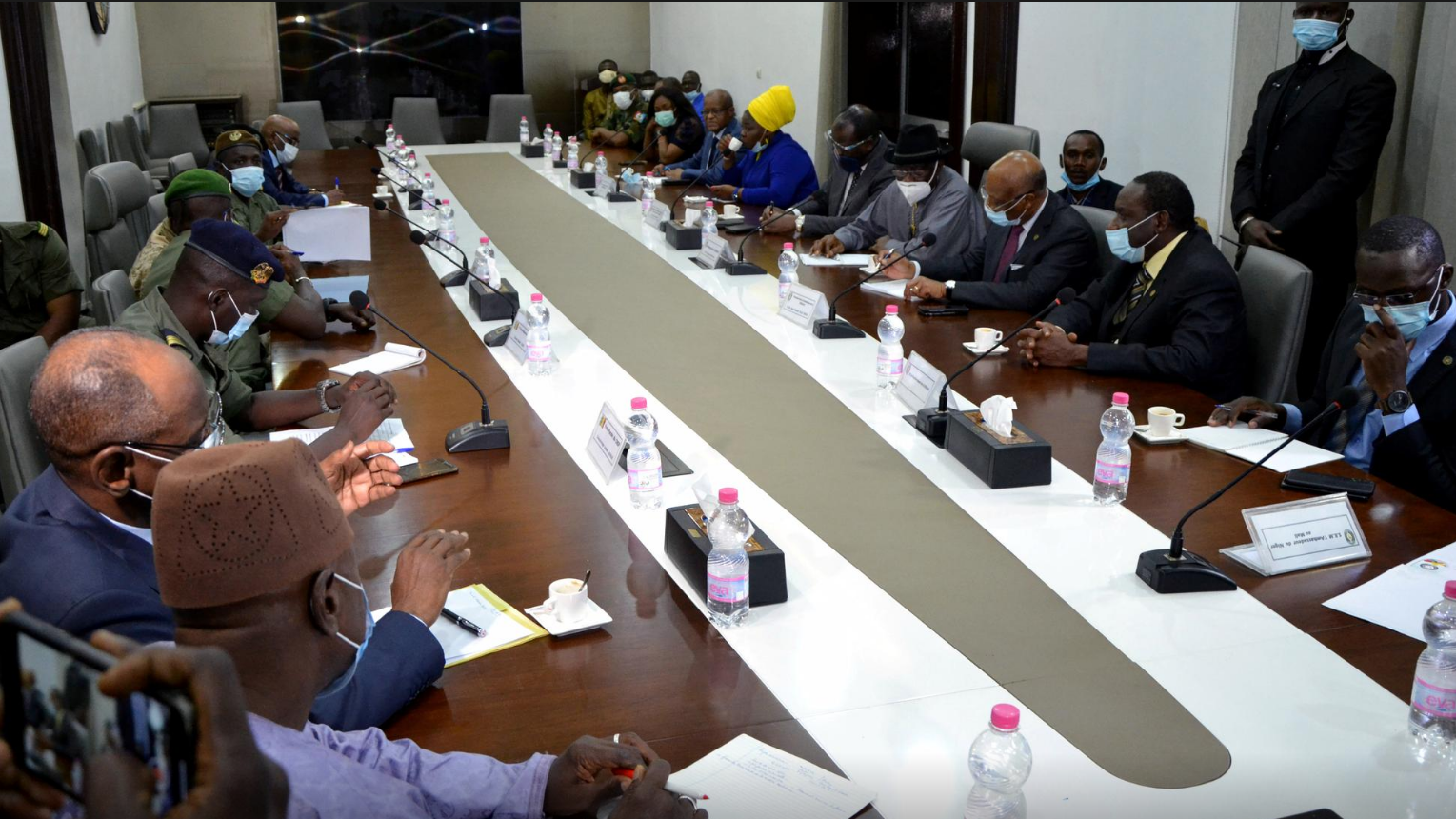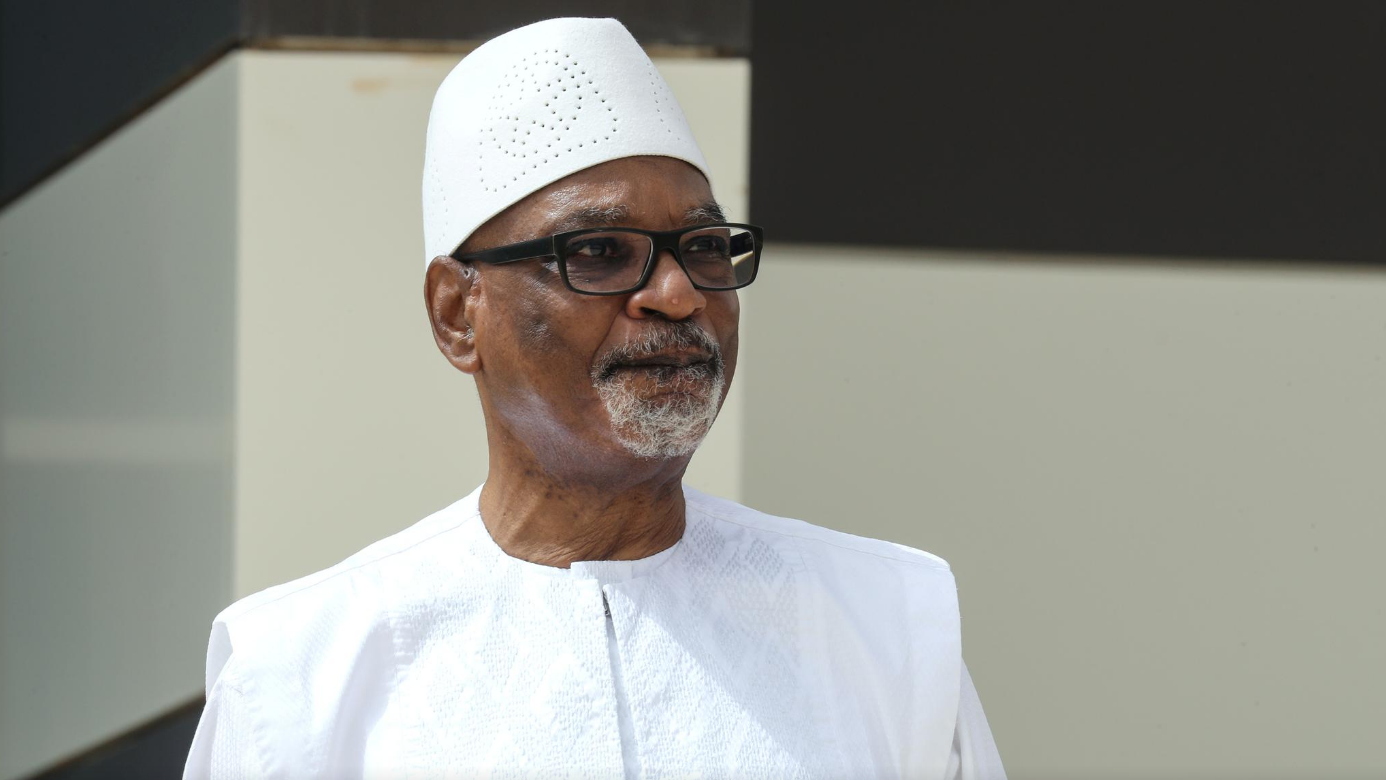
A general view of the meeting between junta leaders of the National Committee for the Salvation of the People (CNSP) which overthrew Mali's President Ibrahim Boubacar Keita and Economic Community of West African States (ECOWAS) mediators in Bamako, Mali, August 22, 2020. /Reuters
A general view of the meeting between junta leaders of the National Committee for the Salvation of the People (CNSP) which overthrew Mali's President Ibrahim Boubacar Keita and Economic Community of West African States (ECOWAS) mediators in Bamako, Mali, August 22, 2020. /Reuters
The political transition period in Mali will last 18 months and be led by a president and a vice president appointed by a commission set up by the National Committee for the Salvation of the People (CNSP), Moussa Camara, general rapporteur of the national consultations which gathered all political forces in the country, said Saturday.
According to the Transition Charter, which was adopted by some 500 participants from different forces of the nation after three days of consultations, the eventual transitional president will be either a military or a civilian.
In addition to the transitional president and his or her vice president, a government will be formed with a maximum of 25 members under the leadership of a prime minister who will be appointed by the transitional president in accordance with the current constitution.
Also, during the period of transition, a National Council of 121 members composed of those from the political forces will be set up as the legislative body.
In a brief closing speech, Colonel Assimi Goita, president of the CNSP, welcomed the spirit that animated these meetings and made the commitment that the junta will rigorously ensure the implementation of the documents validated by the participants after the three-day consultations.

Mali President Ibrahim Boubacar Keita poses for a picture during the G5 Sahel summit in Nouakchott, Mauritania, June 30, 2020. /Reuters
Mali President Ibrahim Boubacar Keita poses for a picture during the G5 Sahel summit in Nouakchott, Mauritania, June 30, 2020. /Reuters
International pressure
Following a mutiny on August 18 in the Soundiata Keita camp in Kati, near Bamako, Malian President Ibrahim Boubacar Keita and Prime Minister Boubou Cisse were brought to the camp by mutineers.
Keita announced his own resignation that evening, as well as his government and the dissolution of the National Assembly.
Mali's neighbors have watched with concern, fearing the country could spiral back into chaos – a scenario that eight years ago helped fuel the jihadist revolt which now rattles Niger and Burkina Faso.
The 15-nation Economic Community of West African States has taken a hard line, insisting that Mali's ruling army officers hand over power within 12 months. It has also closed borders and banned trade with the nation of some 19 million people.
It remains unclear how Mali's neighbors will react to the plan for an 18-month transitional government.
Junta officials are due to meet ECOWAS heads of state in Accra on Tuesday, an official from Ghanaian foreign affairs ministry told AFP.
Mali's junta had initially talked of a three-year transition, corresponding to the time left in Keita's second five-year mandate, that would be overseen by a soldier.
A junta-appointed expert committee then proposed a two-year transition, which delegates whittled down to 18 months after debate in the forum.
(With input from Xinhua, AFP)